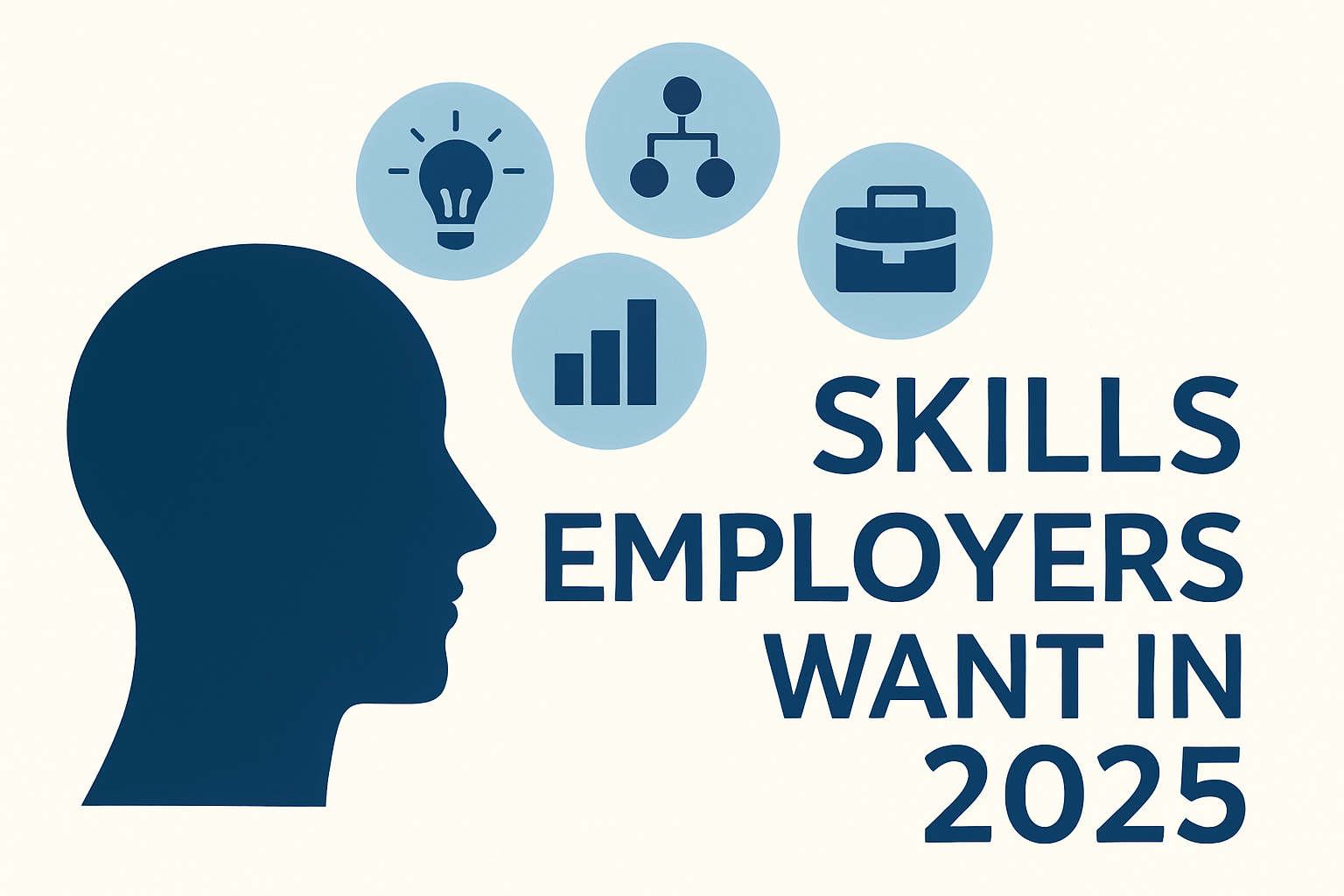The job market in 2025 is no longer driven by degrees alone. Employers are prioritizing professionals who combine AI literacy, adaptability, communication, leadership, data fluency, and critical thinking.
As automation accelerates and hybrid work becomes permanent, companies are hiring for long-term capability — not just short-term experience. If you want career security and growth in 2025, skill strategy matters more than ever.
The question employers ask today is simple:
“Can this person create measurable value in a fast-changing environment?”
Below is a complete breakdown of the most in-demand skills in 2025 and practical ways to build them.
1. AI Literacy & Digital Fluency
Artificial intelligence is integrated into nearly every industry — from marketing automation and finance forecasting to software development and HR analytics.
Employers expect professionals to:
- Understand how AI tools function
- Use AI responsibly and ethically
- Automate repetitive tasks
- Interpret AI-generated outputs critically
AI literacy is becoming as essential as email proficiency once was.
How to Build It
- Learn prompt engineering basics
- Experiment with automation tools
- Take introductory AI or data courses
- Apply AI tools to real workplace tasks
2. Adaptability & Continuous Learning
Nearly half of current workplace skills are expected to evolve within the next few years. Employers prioritize candidates who proactively upgrade their capabilities.
- Embrace change instead of resisting it
- Learn new systems quickly
- Stay updated on industry shifts
- Take initiative during transitions
Adaptability signals resilience and long-term value.
3. Data Fluency & Analytical Thinking
Data literacy is no longer reserved for analysts. Employers expect professionals across departments to understand key metrics.
- Interpret dashboards and KPIs
- Understand basic data visualization
- Make evidence-based decisions
- Ask better analytical questions
Professionals who combine data insight with business intuition stand out.
4. Advanced Communication & Business Storytelling
Communication in 2025 is about clarity and impact.
- Translate technical concepts for non-technical teams
- Write concise updates
- Present insights persuasively
- Align stakeholders around shared goals
Strong communicators increase influence and leadership visibility.
5. Collaboration in Hybrid & Global Teams
Hybrid work is permanent in many industries. Employers value professionals who:
- Communicate asynchronously
- Respect cross-cultural dynamics
- Use collaboration tools effectively
- Build trust remotely
Collaboration skills reduce friction and improve productivity.
6. Critical Thinking & Complex Problem-Solving
AI processes information. Humans provide context.
- Evaluate trade-offs
- Identify root causes
- Make decisions under uncertainty
- Balance short-term and long-term outcomes
Problem-solvers are consistently prioritized in hiring decisions.
7. Leadership & Influence (At Every Level)
Leadership is no longer limited to management roles.
- Take ownership of projects
- Mentor teammates
- Resolve conflicts constructively
- Improve processes proactively
Influence creates career momentum.
8. Sustainability & Ethical Awareness
Organizations increasingly consider environmental and social responsibility.
- Understand ESG principles
- Promote responsible technology use
- Support sustainable business practices
- Consider long-term societal impact
A sustainability mindset enhances future employability.
9. Automation & Efficiency Mindset
High-performing professionals look for smarter systems.
- Reduce repetitive tasks
- Optimize workflows
- Use digital tools strategically
- Continuously improve processes
Efficiency directly impacts business profitability.
How to Build These Skills Strategically
- Dedicate 3–5 hours weekly to skill development
- Apply learning immediately in your job
- Track measurable impact
- Seek feedback regularly
- Participate in cross-functional projects
- Stay updated on industry trends
Career Impact in 2025
Professionals who combine digital intelligence with human-centered skills:
- Receive stronger promotion opportunities
- Command higher salaries
- Maintain greater job security
- Adapt faster during industry disruption
Future-proof careers are built on capability, not credentials alone.
Frequently Asked Questions
Are technical skills more important than soft skills in 2025?
Employers prioritize professionals who combine both. Technical skills create efficiency, while soft skills enable influence and collaboration.
Do I need AI knowledge if I am not in IT?
Yes. Basic AI literacy is becoming universal across industries.
What is the most future-proof skill?
Adaptability and continuous learning remain the most resilient career assets.
Related Articles

